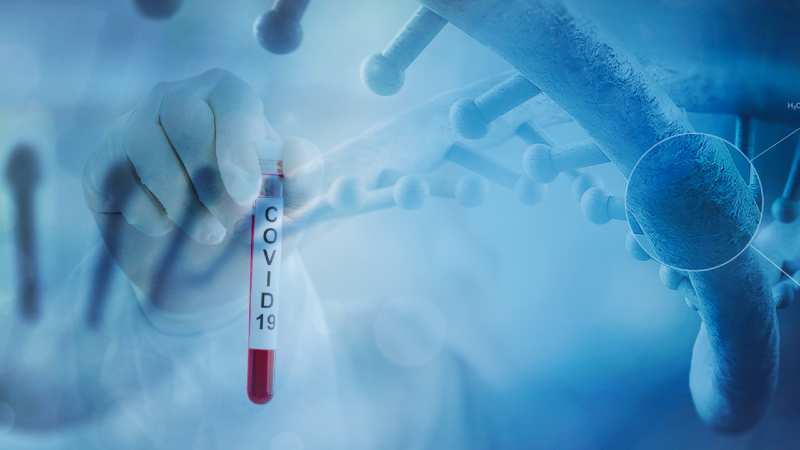Vaccine development to fight Covid-19 is picking up pace, as more and more companies are starting clinical trials and forming collaborations to ensure rapid development and sufficient production capacity. The number of vaccine candidates and techniques in development raises optimism, but the history of vaccine development shows that setbacks and roadblocks are almost certain and a finished product is unlikely to be widely available in 2020. Although Gilead released positive but inconclusive data from its trial of the antiviral remdesivir, a vaccine is still the ultimate goal to prevent future Covid-19 outbreaks.
On Monday, May 3, a global coalition led by EU member states, Canada, Japan, Saudi Arabia, the UK, and Norway pledged $8B for the development of Covid-19 vaccines and to ensure universal global access. The World Bank, the Bill and Melinda Gates Foundation, and other wealthy donors contributed. Meanwhile, the US created its own project, “Operation Warp Speed”, which aims to spend several billion dollars to produce enough doses of a potential vaccine to protect the US population.
Among the companies starting to test their Covid-19 vaccine candidates in clinical trials is German biotech BioNTech, which partnered up with Pfizer to develop its messenger ribonucleic acid (mRNA) vaccine. Phase I/II clinical trials of the vaccine started in Germany at the end of April, and the first US patients were dosed in the first week of May. The study is investigating the right dosage, safety, and immunogenicity for four different versions of the vaccine candidate BNT-162. In China, BioNTech struck a deal with Fosun Pharma to test and produce the vaccine candidate.
Oxford University’s Jenner Institute recently teamed up with AstraZeneca for the development and production of its viral vector vaccine, which started Phase I/II trials at the end of March. The Serum Institute will provide production capacity in India. ChAdOx1, named after its chimpanzee adenovirus vector origin, already successfully completed two studies in rhesus monkeys. If the positive animal results can be replicated in humans, Oxford’s vaccine could start Phase II/III as early as June, according to the Jenner Institute.
Moderna is running animal studies in parallel with human studies, and its vaccine candidate mRNA-1273, which was developed in collaboration with the US National Institutes of Health (NIH), initiated Phase I trials mid-March. Moderna just received approval from the FDA to start its Phase II clinical trial. The company plans to enrol 600 subjects in Phase II and is already planning for Phase III trials to start in the summer. A deal with Lonza will provide the capacity to produce up to 1,000,000,000 vaccines doses per year.
Inovio Pharmaceutical’s Covid-19 DNA-vaccine candidate INO-4800 started Phase I trials at the beginning of April. With funding from the Coalition for Epidemic Preparedness Innovations (CEPI), Inovio struck a deal with the German contract manufacturer Richter-Helm Biologics for large-scale vaccine production. However, Inovio’s Phase I trial has a scheduled end date of April 2021, and Inovio’s novel delivery method using dermal electroporation has not yet been proven successful. Furthermore, several vaccine candidates started clinical studies in China, including CanSino Biologics’ recombinant vector vaccine, as well as Sinovac’s and Sinopharm’s inactivated virus vaccines.

US Tariffs are shifting - will you react or anticipate?
Don’t let policy changes catch you off guard. Stay proactive with real-time data and expert analysis.
By GlobalDataSanofi’s Covid-19 vaccine collaboration with GlaxoSmithKline, in which Sanofi will contribute the viral antigen based on its recombinant vaccine platform, while GlaxoSmithKline will provide an adjuvant to boost the immune response, is planning to enrol several hundred people in clinical trials in September. Sanofi’s partnership with mRNA vaccine developer TranslateBio has not yet started clinical trials, and neither has Johnson & Johnson’s vaccine candidate, which is backed by the Biomedical Advanced Research and Development Authority (BARDA).
All of these developments increase the chance for a successful candidate to emerge and immunise people against the novel coronavirus SARS-CoV-2. However, the timeframe to global mass-market-readiness for such a vaccine remains unclear. Successful candidates would first need to be distributed to healthcare workers and the high-risk population. Additionally, many of the novel techniques used for Covid-19 vaccine development, like mRNA- and DNA-based vaccines, have yet to be proven to work in humans.






